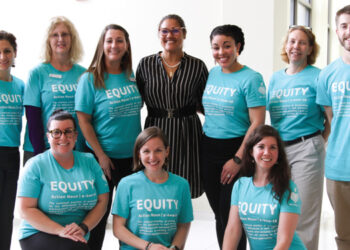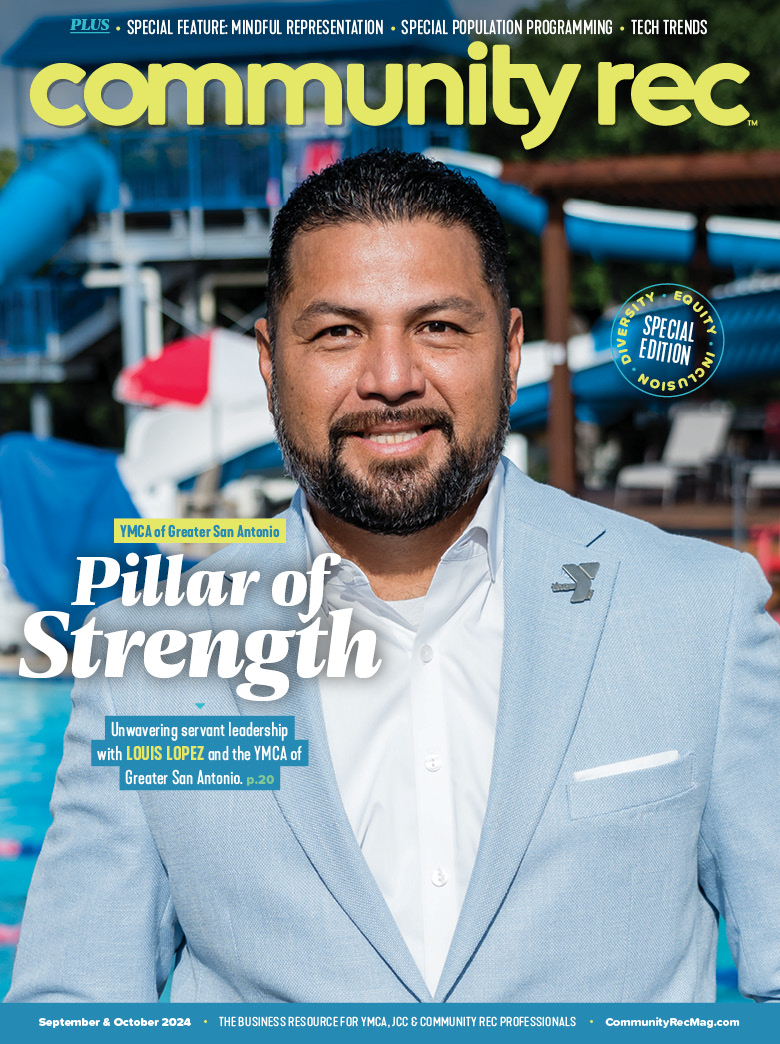Learn about the YMCA of Greater Houston’s Moving Stronger program.
According to a recent study published in Neurology, the medical journal of the American Academy of Neurology, nearly one million people are living with multiple sclerosis (MS) in the United States. With this statistic, it’s no surprise the YMCA of Greater Houston wanted to serve the MS population and anyone living with a chronic-disease condition.
Their initiative began in 2015 by adding specialized yoga and aquatics classes for those living with MS, and the response was strong. Their initiative grew from there and blossomed into a full program designed to specifically serve those with MS, which piloted in 2017.
“A relationship was started with Leorah A. Freeman, a neurologist at The University of Texas Health Science Center at Houston (UT Health), whom took an immediate interest in what we were doing, since she had a number of MS patients and was keen on clinical research into the effects of physical activity,” said Matthew Jewell, the association director of operations at the Greater Houston Y.
From there, the initiative became a partnership with the National Multiple Sclerosis Society (NMSS), UT Health and the YMCA to create a curriculum from scratch, including a training class for the program facilitators. The working title of the program was Group Exercise for Multiple Sclerosis (GEMS), but they wanted a name that fit with the acronym MS. Thus came the Moving Stronger program, a first-of-its-kind offering.
The 12-week program includes 24 sessions of exercise, education and bonding discussions around subjects relevant to people with MS. Each week is focused around a different modality of either yoga, water exercise, or functional fitness with free weights and machines. A robust pre and post 12-week physical evaluation happens, in addition to participant surveys.
Overall, the program has provided a benefit to certain demographics. “The program serves a population that otherwise has very little access to physical activity, improving not only their physical but also mental and spiritual health through the camaraderie and routine, as well as bringing awareness to others of what the experience of MS can be like, and how there is hope for even better daily living,” said Jewell.
While exercise has not been shown to slow the progression of MS, it can help decrease complications that arise from muscular fatigue, weakness, contractures and spasticity. Additionally, exercise can serve as an outlet for stress reduction and help maximize independence, regardless of one’s ability. “Mental health is a huge factor for those with MS, both with cognitive function and emotion, so when that improves, everything else about them is affected positively,” said Jewell.
Overall, the Greater Houston Y is working hard to make a positive impact on those living with MS in their community, and they couldn’t be happier. “The Y is very pleased to be able to provide specifically tailored programming for this population and offer it at no cost to the participants,” said Jewel. “We seek to serve everyone with love and compassion while creating the best experiences possible for them.”










